Vegetarianism: Benefits And Challenges That Will Make You Powerful Healthier
Vegetarianism is a salutary choice that involves avoiding meat, fish, and other animal products. There are different types of submissive diets, similar as lacto ovo vegetarian, lacto vegetarian, ovo vegetarian, and vegan. Each one has its own benefits and challenges for health, environment, and ethics. Additionally, In this article, we will explore some of the pros and cons of vegetarianism and provide some tips on how to follow a balanced and nutritious vegetarian diet. Explore the benefits and challenges of embracing a submissive or plant- based diet. Discover a world of nutritious and delicious plant-based foods that can power your health and wellbeing. Learn about the principles of vegetarianism and how it can positively impact your dietary choices and lifestyle.
In our fast-paced world, making conscious choices about our diet has become more crucial than ever. One such choice gaining traction is vegetarianism, a lifestyle that offers a multitude of benefits for both individuals and the planet. This article aims to shed light on the simplicity and advantages of adopting a vegetarian diet, using easy to understand language.
Transitioning into Vegetarianism: A Gradual Approach
Transitioning into a submissive life need not be an abrupt shift. Begin by incorporating further fruits, vegetables, and whole grains into your refections. Additionally, This gradual change allows your taste buds and digestive system to adapt.
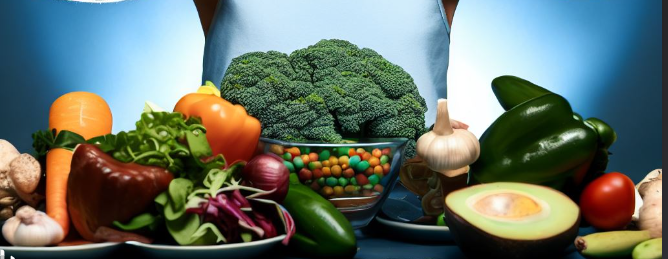
Understanding Vegetarianism Benefits
- Health Benefits: Firstly, a vegetarian diet is abundant in essential vitamins, fiber, and antioxidants. These elements play a vital role in boosting immunity, reducing the risk of chronic diseases, and maintaining a healthy weight. Additionally, studies have shown that vegetarians tend to have lower cholesterol situations and blood pressure, contributing to a dropped threat of heart- related affections.
- Environmental Impact: Beyond personal health, vegetarianism has a positive impact on our environment. Livestock farming generates a significant portion of greenhouse gas emissions. Moreover, by reducing our reliance on animal products, we can help alleviate climate change and maintain natural coffers.
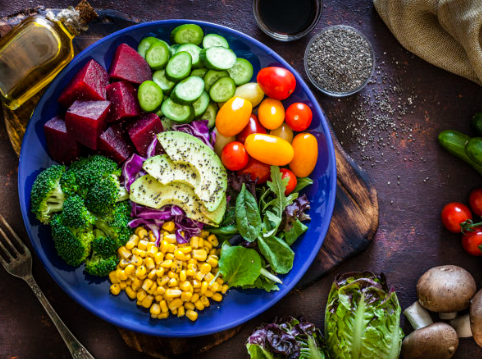
Simple Swaps for a Balanced Diet In Vegetarianism
- Protein Sources: Transitioning to a vegetarian diet doesn’t mean sacrificing protein. Legumes, similar as lentils, chickpeas, and sap, are excellent sources of plant- grounded protein. Tofu, tempeh, and edamame are also versatile options to incorporate into your meals.
- Iron-Rich Foods: Iron, an essential mineral, is readily available in plant-based foods like spinach, lentils, and fortified cereals. Pairing these with Vitamin C-rich foods, such as oranges or bell peppers, enhances iron absorption.
- Omega- 3 adipose acids to ensure an acceptable input of omega- 3 adipose acids, include flaxseeds, chia seeds, walnuts, and hemp seeds in your diet. Moreover, these simple additions offer a host of health benefits, including bettered heart health.

Navigating Social Situations For Vegetarianism
When venturing into vegetarianism, it’s natural to encounter situations where options might be limited. Communicate your salutary preferences politely and do nt vacillate to ask for indispensable options. Moreover, bringing a dish to participate at gatherings ensures that you have a satisfying and nutritional option available.
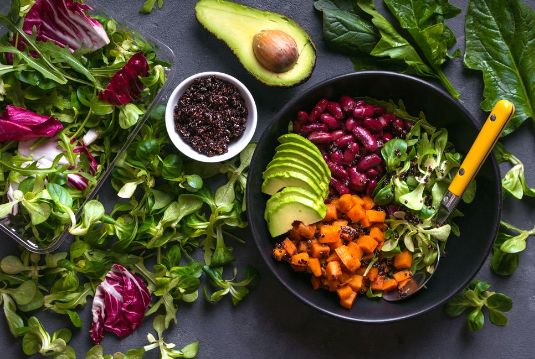
Staying Inspired and Informed About Vegetarianism
- Cuisine and recipe coffers exploring submissive cookery opens up a world of instigative flavors and culinary emprises. Multitudinous cookbooks, websites, and cooking channels offer easy- to- follow recipes, making the transition flawless and pleasurable.
- Community support joining original or online submissive communities provides a space to connect with suchlike- inclined individualities. Sharing experiences, tips, and recipes can be a source of motivation and inspiration.
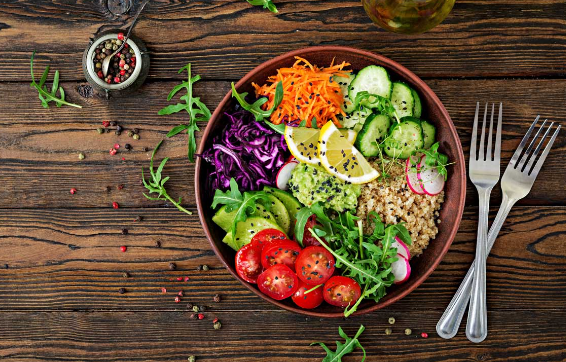
Benefits of Vegetarianism
One of the main benefits of vegetarianism is that it can reduce the risk of many chronic diseases, such as cardiovascular disease, diabetes, stroke, and some cancers. This is because vegetarian diets tend to be rich in plant-based foods, such as fruits, vegetables, whole grains, legumes, nuts, and seeds. Moreover, these foods give antioxidants, fiber, vitamins, minerals, and phytochemicals that can cover the body from oxidative stress, inflammation, and DNA damage.
Another benefit of vegetarianism is that it can help with weight operation. Studies have shown that vegetarians tend to have lower body mass index (BMI), lower body fat percentage, and lower waist circumference than non-vegetarians. Moreover, this is because submissive diets tend to be lower in calories, impregnated fat, and cholesterol than meat- based diets. Vegetarians also tend to consume more water and fewer processed foods than non-vegetarians.
A third benefit of vegetarianism is that it can have a positive impact on the climate. Additionally, By avoiding meat and animal products, vegetarians can reduce their ecological footprint and contribute to the conservation of natural resources. For case, producing one kilogram of beef requires about 15,000 liters of water, whereas producing one kilogram of wheat requires only 1,500 liters of water. Moreover, livestock farming contributes to about 14.5% of global greenhouse gas emissions, whereas plant-based agriculture contributes to only 11%.
A fourth benefit of vegetarianism is that it can support the ethical treatment of animals. Additionally, Many people choose to become vegetarians because they are concerned about the welfare and rights of animals that are raised for food. They believe that animals have intrinsic value and deserve respect and compassion. By avoiding meat and animal products, vegetarians can avoid supporting the practices of factory agriculture, animal testing, and animal exploitation.

Challenges of Vegetarianism
One of the main challenges of vegetarianism is that it can lead to some nutrient deficiencies if not planned properly. Some of the nutrients that may be lacking in a vegetarian diet are protein, iron, zinc, calcium, vitamin B12, vitamin D, and omega-3 fatty acids. Additionally, These nutrients are essential for various functions in the body, such as muscle growth, blood formation, bone health, nerve function, immune system, and brain development.
Another challenge of vegetarianism is that it can limit the food choices and social opportunities for some people. Depending on where they live and what their preferences are, vegetarians may have difficulty finding suitable restaurants or grocery stores that cater to their dietary needs. Additionally, They may also face some challenges when traveling or attending social events where meat is the main dish.
A third challenge of vegetarianism is that it can affect the satiety and satisfaction levels for some people. Some people may find it hard to feel full or satisfied after eating a vegetarian meal because they are used to eating meat or animal products. They may also miss the taste or texture of meat or crave for certain foods that they used to enjoy before becoming vegetarians. Additionally, Some vegetarians may also struggle with emotional eating or binge eating due to stress or boredom.
A fourth challenge of vegetarianism is that it can expose some people to harmful chemicals or contaminants that may be present in some plant-based foods. For example, some fruits and vegetables may contain pesticides or herbicides that can affect the health of the consumers. Additionally, Some grains and legumes may contain anti-nutrients or lectins that can interfere with the absorption of minerals or cause digestive problems.
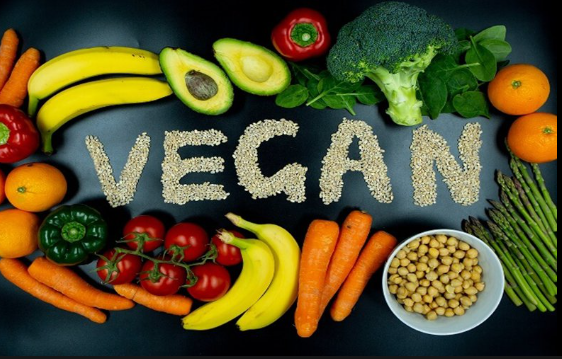
Tips for a Balanced Vegetarian Diet
To overcome the challenges of vegetarianism and enjoy its benefits, it is important to follow a balanced and varied vegetarian diet that meets the nutritional needs of the individual. Here are some tips on how to do so:
Diverse Plant-Based Diet for Optimal Nutrition and Health
Eat a variety of plant-based foods and Vegetarianism from different food groups every day. Include fruits, vegetables, whole grains, legumes, nuts, seeds, and soy products in your diet. These foods will provide you with protein, fiber, carbohydrates, fats, vitamins, minerals, and phytochemicals that are essential for your health.
Ensuring Essential Nutrients in a Vegetarian Diet
Choose fortified foods or supplements to meet your needs for certain nutrients that may be lacking in a vegetarian diet. For example, you can choose fortified cereals, breads, plant milks, or juices that contain added iron, zinc, calcium, vitamin B12, or vitamin D. Vegetarianism can also take a multivitamin or a specific supplement that contains these nutrients if recommended by your doctor or dietitian.
Optimizing Nutrient Absorption in Plant-Based Cooking
Use cooking methods or techniques that enhance the absorption or availability of nutrients in plant-based foods. For example, you can soak, sprout, or ferment grains and legumes to reduce their anti-nutrient content and increase their digestibility. You can also cook or chop fruits and vegetables to increase their antioxidant content and bioavailability. You can also combine different foods that complement each other in terms of nutrient content Vegetarianism. For example, you can eat iron-rich foods with vitamin C-rich foods to enhance iron absorption.
Exploring Flavorful Options in Vegetarian Cuisine
Experiment with different recipes, spices, herbs, sauces, and condiments that add flavor and variety to your vegetarian meals. You can also try different cuisines or dishes that are traditionally vegetarian or vegan, such as Indian, Thai, Chinese, Mexican, or Mediterranean. You can also use meat alternatives or substitutes, such as tofu, tempeh, seitan, mushrooms, jackfruit, or plant-based burgers or sausages to mimic the taste or texture of meat.
Vegetarianism Empower Your Diet with Homemade Meals and Snacks
Plan ahead and prepare your own meals and snacks as much as possible. This will help you avoid eating out or buying processed foods that may be high in calories, fat, salt, sugar, or additives. It will also help you save money and time and ensure that you have enough food options to meet your dietary needs and preferences. You can also pack your own lunch or snacks when traveling or attending social events where vegetarian food may not be available.
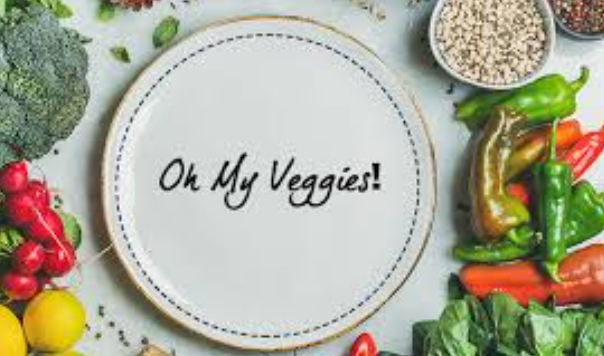
Various food groups that constitute a vegetarian diet
Certainly! Let’s delve deeper into the various food groups that constitute a Vegetarianism diet and provide some examples of what you can eat:
| Food Group | Examples |
|---|---|
| Fruits | Apples, bananas, oranges, berries, grapes, melons |
| Vegetables | Spinach, kale, lettuce, broccoli, cauliflower, carrots |
| Whole Grains & Cereals | Brown rice, quinoa, whole wheat bread, oats, barley |
| Legumes & Pulses | Black beans, kidney beans, pinto beans, chickpeas, lentils |
| Nuts & Seeds | Almonds, walnuts, chia seeds, flaxseeds, pumpkin seeds |
| Dairy Alternatives | Soy milk, almond milk, coconut milk, vegan cheese, plant-based yogurt |
| Plant-Based Protein Sources | Tofu, tempeh, seitan, plant-based meat alternatives |
| Healthy Fats | Avocados, olive oil, nuts, seeds |
| Herbs, Spices & Flavorings | Basil, parsley, cumin, coriander, turmeric, mustard |
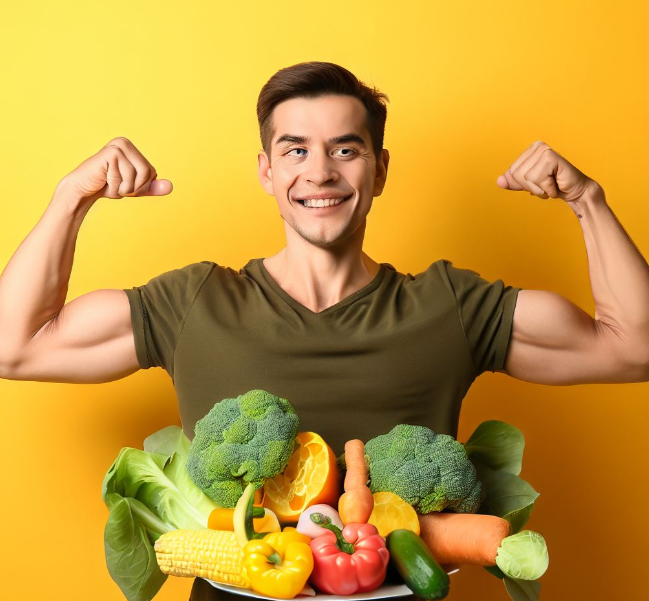
Transitioning to a vegetarian diet
Transitioning to a submissive diet can be a satisfying and healthy choice, but it can also be challenging if you’re used to eating meat and animal products. Here are some tips on how to make the transition easier and more enjoyable:
Start gradually
You don’t have to go vegetarian overnight. You can begin by reducing your meat intake and increasing your plant-based foods intake. For example, you can have one or two meatless days per week. Or replace one meal per day with a vegetarian option. You can also try different types of vegetarian diets. Similar as lacto- ovo- vegetarian (includes dairy and eggs), lacto- vegetarian (includes dairy), ovo- vegetarian (includes eggs), or vegan(excludes all animal products). Find what works best for you and your lifestyle.
Plan ahead
To avoid feeling empty or wearied with your submissive diet, it’s important to plan your refections and snacks ahead of time. You can use online coffers, cookbooks, blogs, or magazines to find submissive recipes that suit your taste and budget. You can also prepare some dishes in advance and indurate them for after use.
Eat a balanced diet
A vegetarian diet can provide all the nutrients you need for good health. As long as you eat a variety of foods from different food groups. You should aim to eat at least five portions of fruits and vegetables per day.As well as whole grains, legumes, nuts, seeds, and soy products. These foods will give you with protein, fiber, carbohydrates, fats, vitamins, minerals, and antioxidants that are essential for your body. Still, some nutrients may be harder to get from a submissive diet. Similar as iron, zinc, calcium, vitamin b12, vitamin d, and omega- 3 adipose acids. To ensure you get enough of these nutrients. You may need to eat fortified foods or take supplements if recommended by your doctor or dietitian.
Enjoy the variety
One of the benefits of a vegetarian diet is that it can expose you to a wide range of foods and flavors that you may not have tried before. You can experiment with different cuisines and dishes that are traditionally vegetarian or vegan. Such as Indian, Thai, Chinese, Mexican, or Mediterranean. You can also use meat alternatives. Similar as tofu, tempeh, seitan, mushrooms, jackfruit, or plant- grounded burgers to mimic the taste or texture of meat. You can also add umami to your food by using fermented seasonings. Such as soy sauce, liquid aminos, or vegan Worcestershire sauce, or by using dried mushrooms and tomatoes, nutritional yeast, vegetable broth, and savory spices.
Seek support and guidance
Transitioning to a submissive diet can be easier and further fun if you have the support and guidance of professionals, buddies, family, or online communities that participate your submissive life. Moreover, you can ask for advice or tips from your doctor, dietitian, nutritionist, or trainer on how to follow a healthy submissive diet that suits your aims and requirements.
I hope these tips help you transition to a vegetarian diet smoothly and successfully.

Conclusion
Vegetarianism is a salutary choice that has numerous benefits and challenges for health, climate, and ethics. By following a balanced and varied vegetarian diet that meets the nutritional needs of the individual. One can enjoy the advantages of vegetarianism and overcome its drawbacks. Vegetarianism isn’t only a diet but also a life that can have a positive impact on oneself and the world. Embracing vegetarianism is a trip towards a healthier you and a more sustainable earth. By making simple yet impactful changes in your diet, you contribute to your well-being and the well-being of the environment. Remember, every small step counts, and with time, you ll find that taking on a submissive life is both attainable and immensely satisfying.
